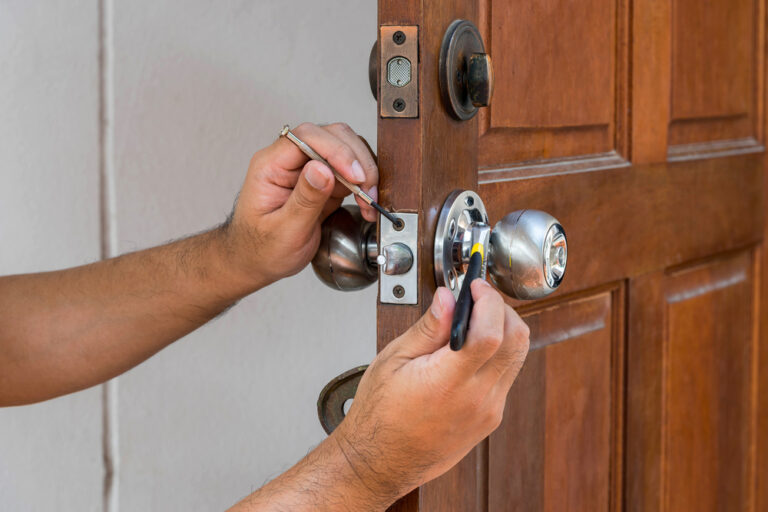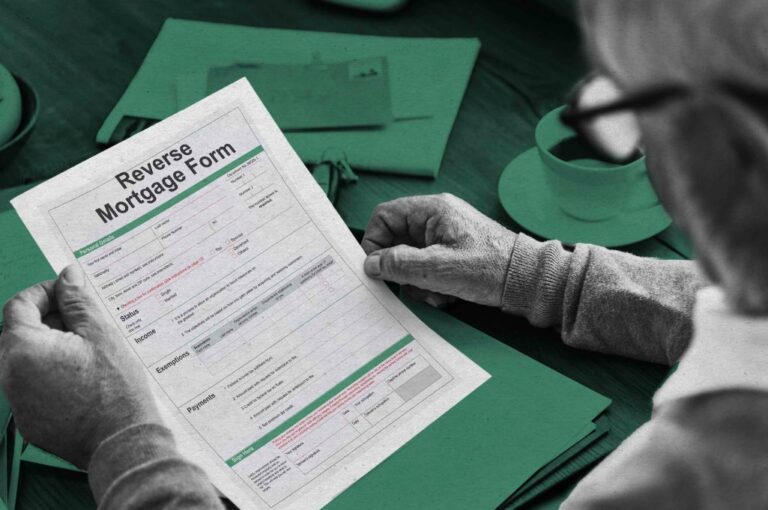Ensuring the safety of our homes is paramount, and the foundation of home security starts with robust residential locks. Locksmiths, with their expertise in security mechanisms, are invaluable in guiding homeowners through the myriad of options available. This blog post aims to demystify the complexities of choosing the right locks for your home. From understanding your specific security needs to installing and maintaining your deadbolts, we’ll provide comprehensive insights, ensuring that your sanctuary remains impenetrable to threats.
Understanding Home Security Needs
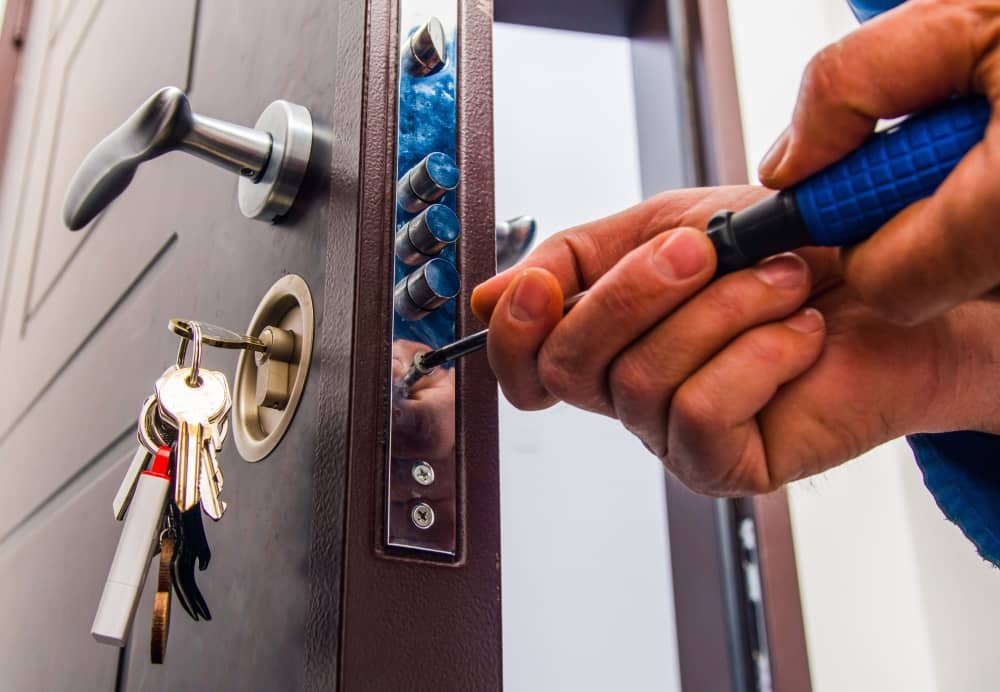
Home security is not a one-size-fits-all solution. Factors such as location, property layout, and personal lifestyle play pivotal roles in determining your security needs. For instance, homes in secluded areas might require more stringent security measures than those in gated communities. Understanding the significance of different entry points in your home is crucial. A locksmith can assess these variables, offering personalized advice to fortify your home effectively. Their expertise ensures that every lock serves its purpose, harmonizing with your overall security strategy.
Types of Residential Locks
Navigating the world of residential locks can be overwhelming. Common types include deadbolts, known for their strength, knob locks, typically used for interior doors, and smart locks, which offer keyless convenience and remote access. Each type has its pros and cons. For instance, while deadbolts provide high security, they might not be as convenient as keypad-operated smart types. Conversely, smart ones offer ease of use but can be vulnerable to technological glitches or hacking. Understanding these nuances is key to choosing locks that offer both security and functionality. For the best selection of locks and the most professional help in this domain you should check out super247locksmith.
Lock Grades and Standards
The durability and reliability of a lock are quantified by grading systems, such as those from ANSI/BHMA. These grades (Grade 1 being the highest) indicate the lock’s ability to withstand attempts at forced entry. Opting for locks that meet recognized industry standards is a testament to their quality. Depending on your security needs, a higher-grade lock might be imperative. For instance, external doors might benefit from Grade 1 locks due to their exposure to potential break-ins, while internal doors may only require Grade 2 or 3 types.
Keyless Entry Systems
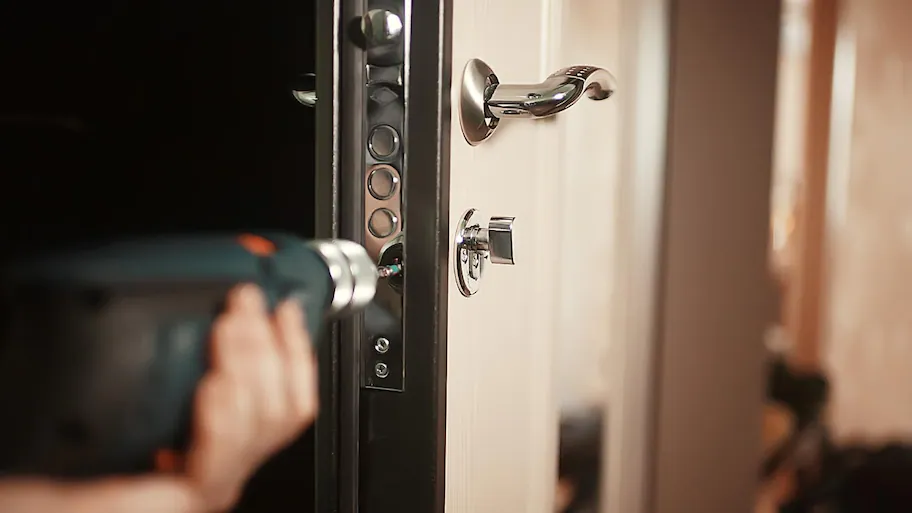
The advent of keyless entry systems has revolutionized home security, offering both sophistication and convenience. These systems, ranging from keypad locks to advanced smart types, eliminate the need for physical keys. This not only reduces the risk of lost keys but also allows for features like remote access and entry logs. When choosing a keyless system, consider factors like battery life, compatibility with your smart home ecosystem, and the security of its wireless communications to ensure it enhances, rather than compromises, your home security.
Lock Materials and Durability
The material of a lock significantly impacts its durability and resistance to tampering. Common materials include brass, steel, and zinc alloy, each offering different levels of strength and resilience. For instance, steel is renowned for its sturdiness and is often used in high-security locks. When choosing a lock, consider the environmental conditions it will face, such as outdoor weather or indoor humidity, and ensure that the material is suited to withstand these challenges without compromising its integrity.
Lock Installation and Maintenance
Proper installation is crucial for maximizing a lock’s effectiveness. A poorly installed lock can be a significant security vulnerability. Adhering to the manufacturer’s guidelines and considering professional installation for complex systems is advisable. Regular maintenance, such as lubricating moving parts and checking for wear and tear, can prolong the life of your locks. For advanced systems, ensure firmware and software are kept up-to-date to protect against digital threats.
Security Features and Add-ons
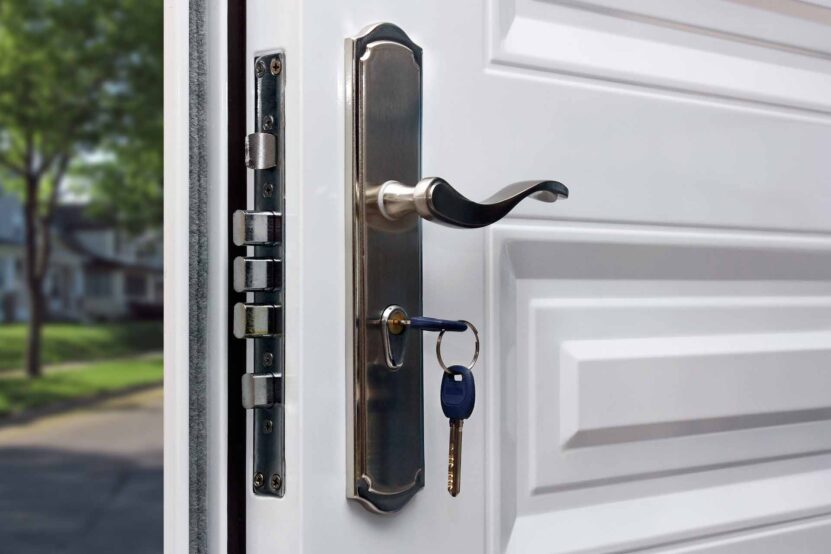
Modern locks come with an array of features designed to thwart burglars’ most common tactics. Anti-drill features, for instance, protect against attempts to destroy the lock mechanism, while anti-pick and anti-bump features safeguard against more subtle methods of lock manipulation. When choosing a lock, consider these features based on the prevalent risks in your area. For instance, in neighborhoods with a high rate of break-ins, investing in pieces with advanced security features might be a prudent decision.
Compatibility with Entry Points
Different entry points necessitate different types of locks. For front doors, high-security deadbolts or smart locks are recommended due to their frequent use and exposure to potential intruders. Sliding doors and windows might require specialized types designed to withstand the unique ways these entry points can be compromised. Consulting with a locksmith can help determine the most suitable lock for each entry point, ensuring a cohesive and impenetrable security setup.
Budget Considerations
Balancing cost and security is a common dilemma when choosing residential locks. While high-grade ones offer better security, they also come with a higher price tag. Conversely, more affordable options might not provide the desired level of protection. Assessing your security needs against your budget can guide you in finding a lock that offers the best value. Remember, investing in quality locks is investing in your peace of mind.
Locksmith Recommendations

Locksmiths, with their hands-on experience, are a treasure trove of insights when it comes to choosing residential locks. They can recommend brands and models that have proven reliable and durable in the field. Anecdotes from their professional encounters can illustrate how certain types have withstood or succumbed to real-world threats, providing a practical perspective on the theoretical specifications.
Conclusion and Recap
Choosing the right residential locks is a critical component of your home security strategy. By understanding your specific needs, considering the type of locks, their grades and materials, and integrating advanced security features, you can fortify your home against threats. Regular maintenance and professional advice further enhance this security. Remember, investing in quality locks is not just about protecting your possessions; it’s about ensuring the safety and peace of mind for you and your loved ones. Make informed decisions and let your deadbolts be the guardians of your sanctuary.
Related Posts:
- How Long Does It Take to Get Short-Term Disability?…
- How Long Does Short-Term Disability Take to Process?…
- How to Fix a Relationship: Tips for Rebuilding…
- Teen Dating With Age Gaps – What's Allowed and Tips…
- Influencer Ascent: Essential Tips for Building Your…
- Strategic Celeb Branding: Tips for Effective Social…

